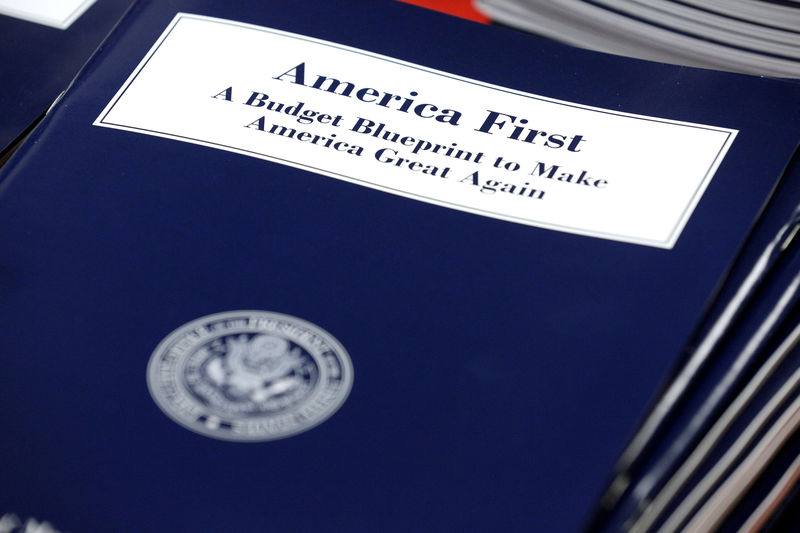By Roberta Rampton
WASHINGTON (Reuters) - It's not unusual for a newly minted White House to present what's known as a "skinny budget," a wish list of spending requests for Congress and some basic economic projections.
However, President Donald Trump's first crack at the budget, released on Thursday, took "skinny" to a new, anemic level as he laid out his plans for boosting military spending, and cutting foreign aid and an array of domestic programs.
Spreadsheets are out. Bullet points are in. Weighing in at a mere 53 pages, and containing just four slender tables, Trump's budget had little meat on its bones for experts hungry to dive into the details of the new administration's fiscal policy.
That may make it the skinniest skinny budget, by far, compared with the 40 years of presidential budgets in transition years tracked by the Congressional Research Service (CRS).
When President Jimmy Carter took office, his first budget document was 101 pages, the CRS said. President George H.W. Bush's first take was 193 pages, and President George W. Bush's was around the same length, at 207 pages.
President Bill Clinton's first budget document was 145 pages, while President Barack Obama's initial take was a leaner 134 pages.
The difference is in focus. Trump's budget looks only at "discretionary" programs for the year ahead, accounting for only about a third of the overall budget.
It makes no assumptions about "mandatory" spending on programs like Social Security or Medicare, says nothing about spending beyond fiscal 2018, and gives no projections about how promised tax cuts and infrastructure spending might affect the nation's bottom line.
"This is a budget blueprint, not a complete budget," said Trump's budget director Mick Mulvaney, ahead of its release, promising a full buffet of data, forecasts, and details in the full budget in mid-May.
To be sure, budget experts were not expecting a hefty document. The Trump administration had hinted it would be on the thin side of skinny.
"It could be emaciated," Robert Bixby, executive director of the Concord Coalition, a non-partisan budget reform advocacy group, said in an interview on Tuesday.
"At some point, you've got to put your cards on the table, and show some numbers," Bixby said.
Maya MacGuineas, head of the Committee for a Responsible Federal Budget, said there were too few details to fully understand the larger choices ahead: "It is impossible to see the big picture when you only have a few pieces of the puzzle."
Kenneth Baer, a former associate director in Obama's Office of Management and Budget, said an overly skinny budget would make it hard to interpret how the Trump administration would spend taxpayers' money.
"It's sort of like building a house, but only putting up the front door," Baer said.

(Click here https://apac1.proxy.cp.extranet.thomsonreuters.biz/fingfx/gfx/rngs/USA-TRUMP-BUDGET/0100405W0DC/ for a graphic on 'Winners and losers in Trump's budget')